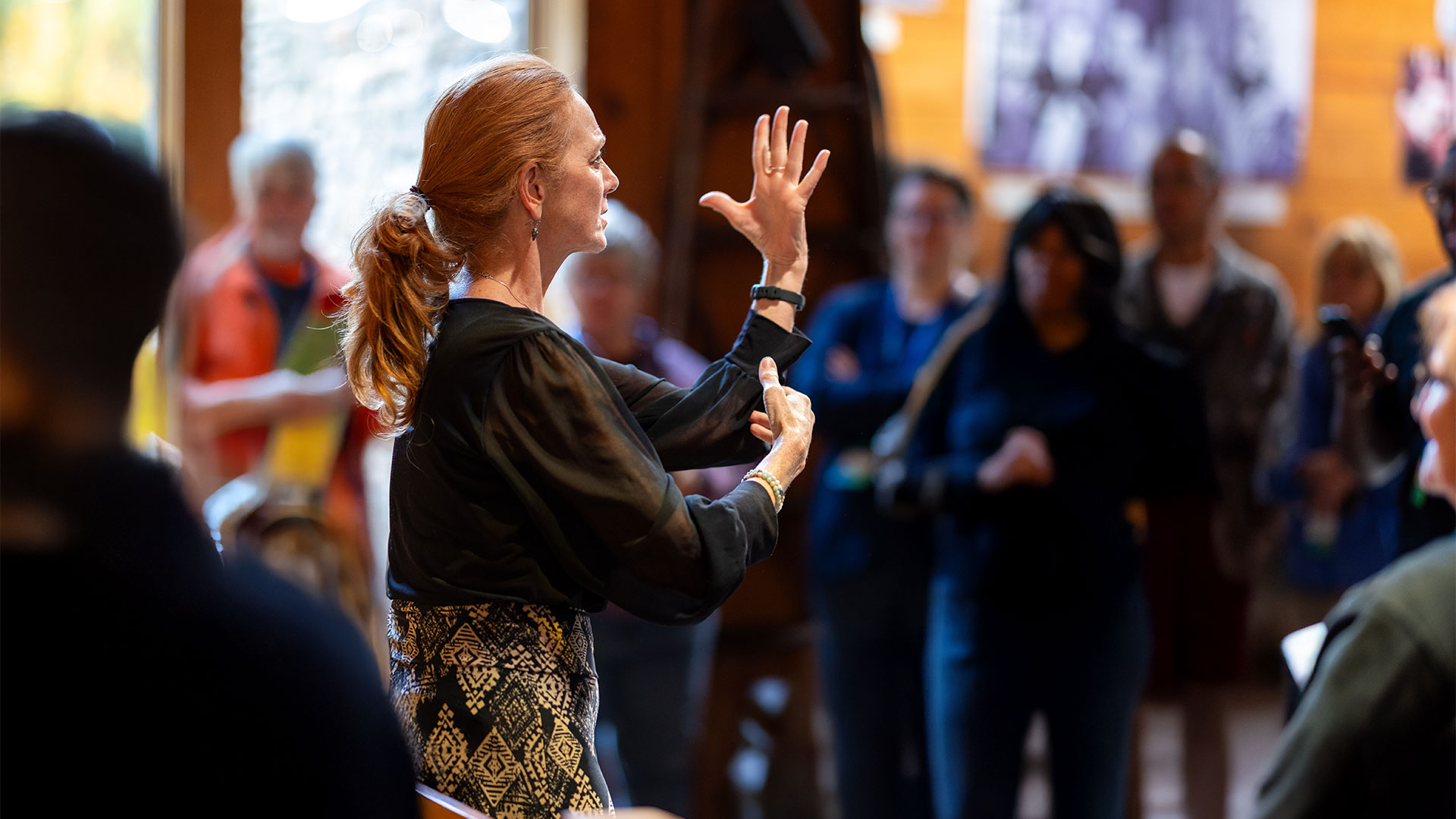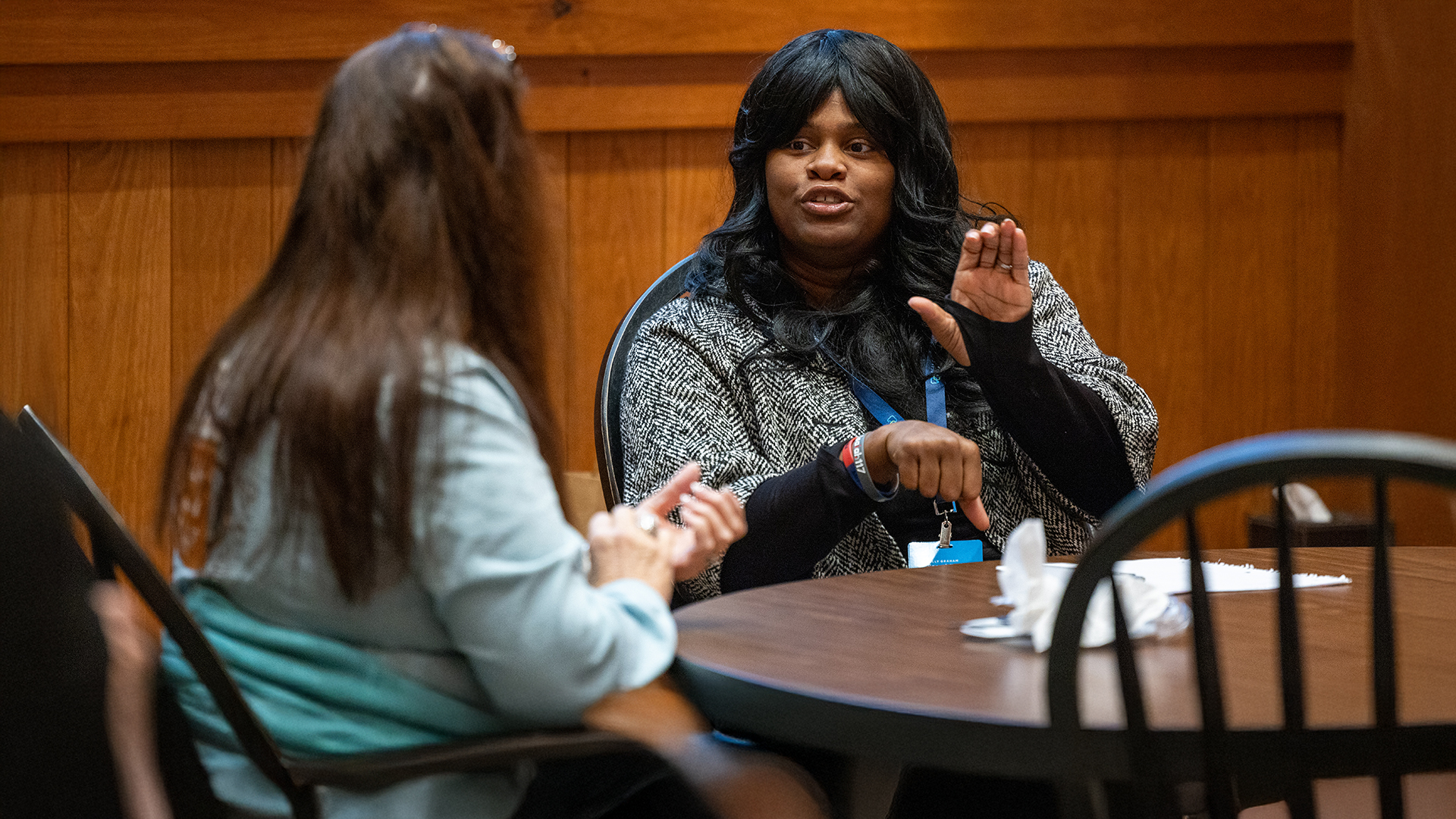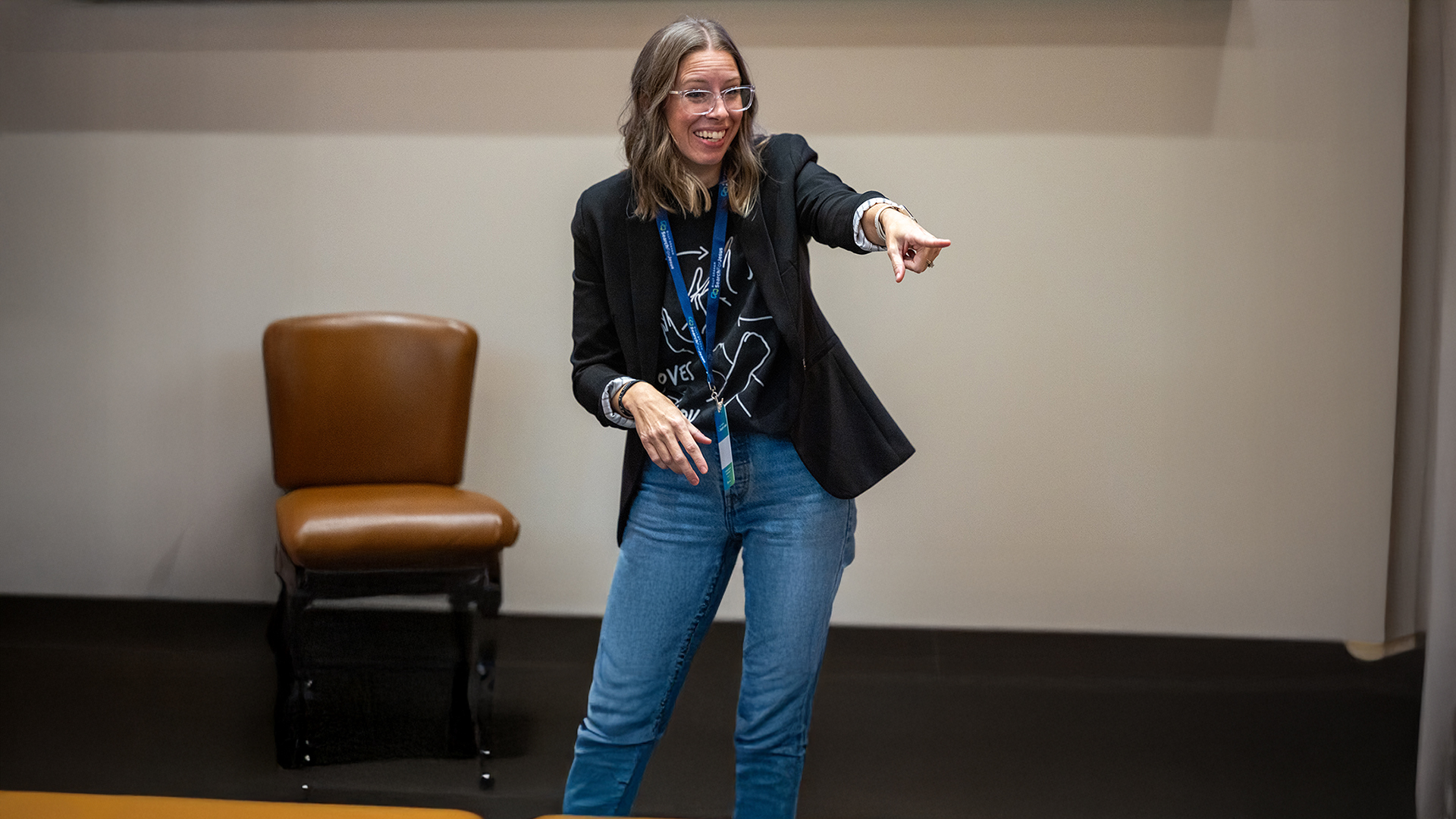
To sign the words motivated, excited, or fired up in American Sign Language (ASL), you can rub your hands together in front of your chest. During the Engage conference last week, this word was signed all over the room as Deaf attendees were inspired to put urgency in their evangelism.
The event was hosted by the Billy Graham Evangelistic Association (BGEA) in the Billy Graham Library, and united volunteers for ASL by Light, a ministry of Search For Jesus that connects with the Deaf community online. Using direct messages and internet ads, trained Deaf volunteers chat with people who have questions about faith or God, pointing them to the truth of the Gospel.
This ministry is shining a light on an unreached people group—only 2% of Deaf people have ever heard the Gospel. One volunteer, Nick, has been serving with this ministry for a year and a half, helping people online and creating content to reach the Deaf on Facebook and Instagram. As he met with other people at the conference who are passionate about the Gospel, he’s been inspired to persevere in ministry.
“I think all people are hungry; it doesn’t matter what age they are,” Nick signed, referencing the Deaf community who is often hearing the Good News for the first time. “It gives me motivation to continue.”

Here are a few practical tips speakers shared to motivate believers to proclaim the Gospel wherever they are.
How Would Jesus Respond?
ASL by Light conversations often start with a question from a curious person on the internet. It’s easy to jump to conclusions about why someone asked a question, but Erin Falacho, a Deaf evangelist and speaker at the conference, encouraged the audience to consider how Jesus would respond.
Each time Christ engaged someone in an evangelistic conversation, He met them where they were. The Pharisee Nicodemus who came under cover of darkness, the Samaritan woman in her hurt, the disciples in their curiosity—Jesus met them all with patience and truth.
“The disciples always asked ‘What do you mean?’” Falacho reminded them. “Jesus didn’t respond with, ‘Get over it, move on, get with the program.’ He was patient and explained things.”
When considering how to approach a spiritual conversation, pause to consider that person’s background and how Jesus would engage them.

Pause and Pray
One of the biggest barriers to sharing the Gospel is fear—worry about what others will think of you or confusion about what to say. But Hahn Bielfeldt, BGEA’s language manager for ASL, said we often quit too soon. Gospel ministry can be simply planting seeds in people’s minds, he said, waiting for God to bear fruit.
“If it doesn’t happen quickly, they give up,” Bielfeldt said. “Don’t give up before the miracle!”
Falacho encouraged the audience to take advantage of the power of prayer, even talking silently to God in the middle of a conversation.
“If your heart is not in the right [place], pray that God will give you a compassionate heart,” she said. “Make sure your heart is soft and ready to share.”
The Power of Questions
Curiosity is a great tool to draw people into a spiritual conversation. Many people wonder about what happens when we die, or what Heaven is like. But it’s easy to get stuck in the theological weeds and forget what’s most important—the truth of God’s Word.
To avoid that, Falacho encouraged the audience to ask questions that point back to people’s need for peace and joy that only Jesus can meet.
“Ask a question, try to see things from their perspective, and try to understand where they’re coming from,” Falacho said. “Don’t rehearse in advance a perfect answer. In the moment, think about it—listen.”
She encouraged them to avoid yes or no questions that often stop a conversation in its tracks. Instead, she suggested starting with open-ended questions like “How did that make you feel?” or “Can you tell me more?”
“That’s the goal, to draw something out of the person,” Falacho reminded them. “Find a way to find common ground. Connect with somebody at their level.”
Kevin, a Deaf evangelist, signed that his skills were sharpened by the sessions and practical learning scenarios the conference provided. Participants were able to practice how they would respond in a real-life conversation.
“It keeps my heart and my mind focused and fresh,” Kevin signed. “I need to learn how to talk more when people ask me challenging questions. I have to talk to God, ‘God help me.’”
By relying on Christ for His strength and being quick to ask questions, we can replace our fear of evangelism with joy and boldness.
